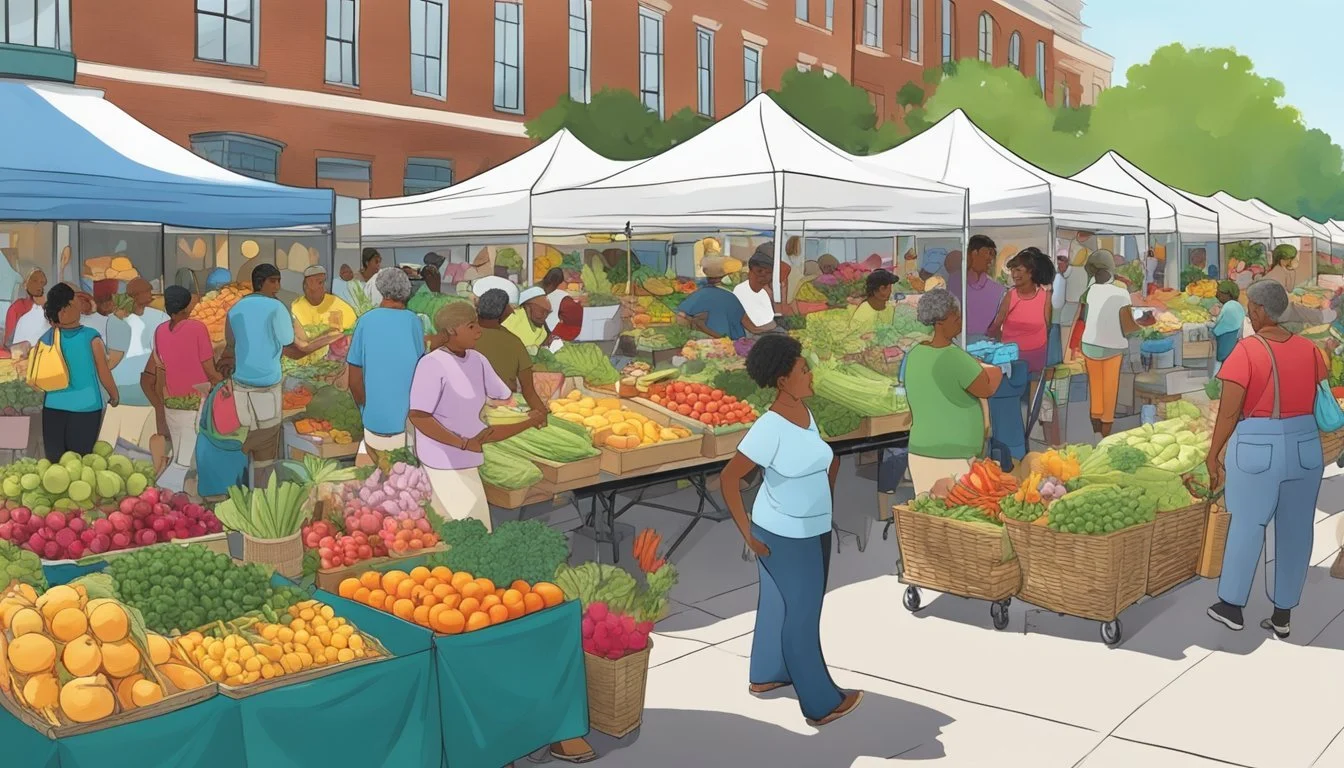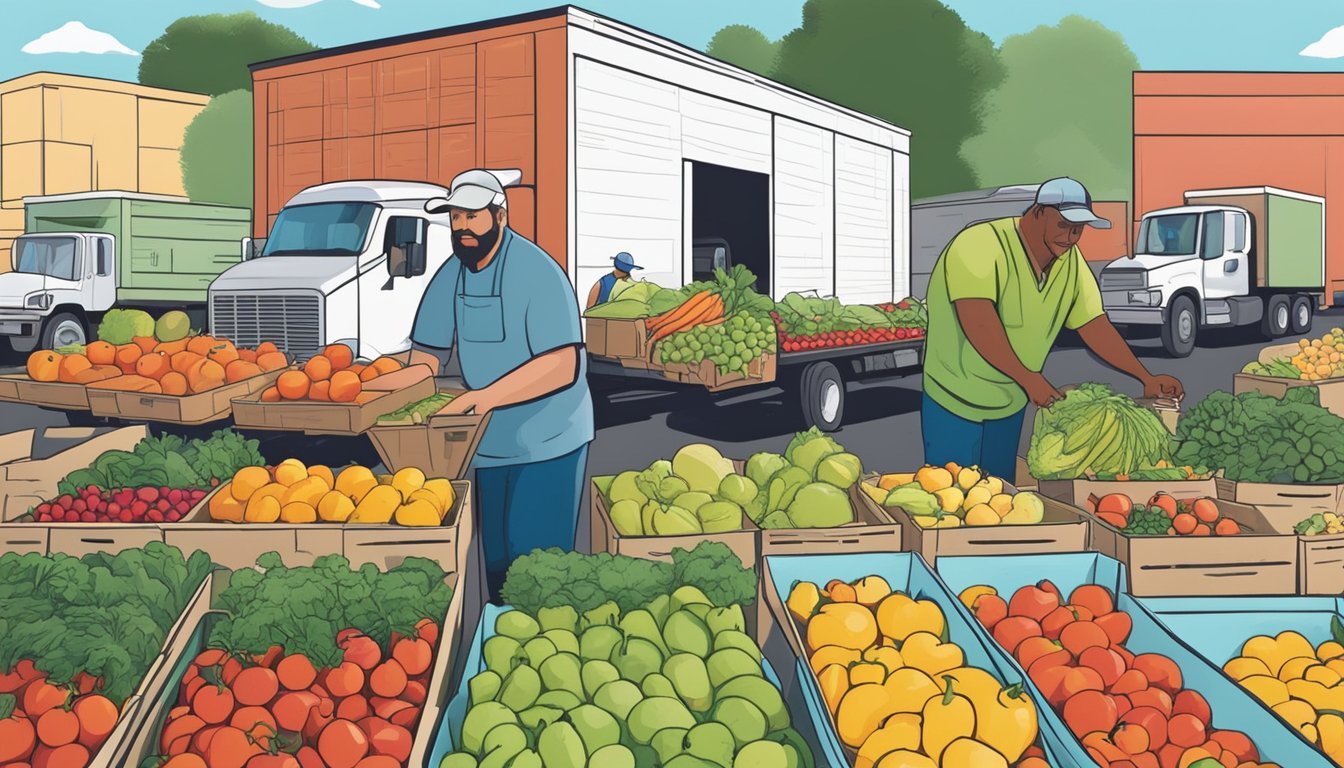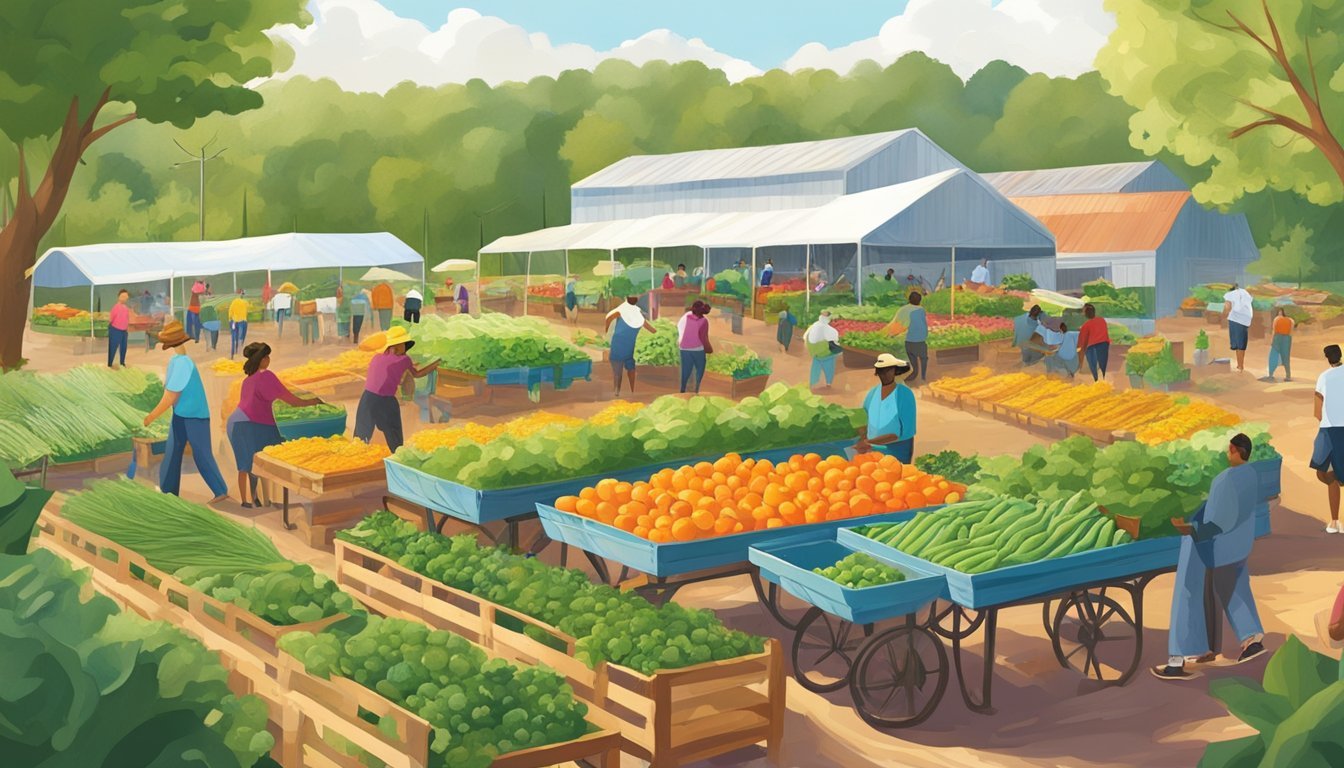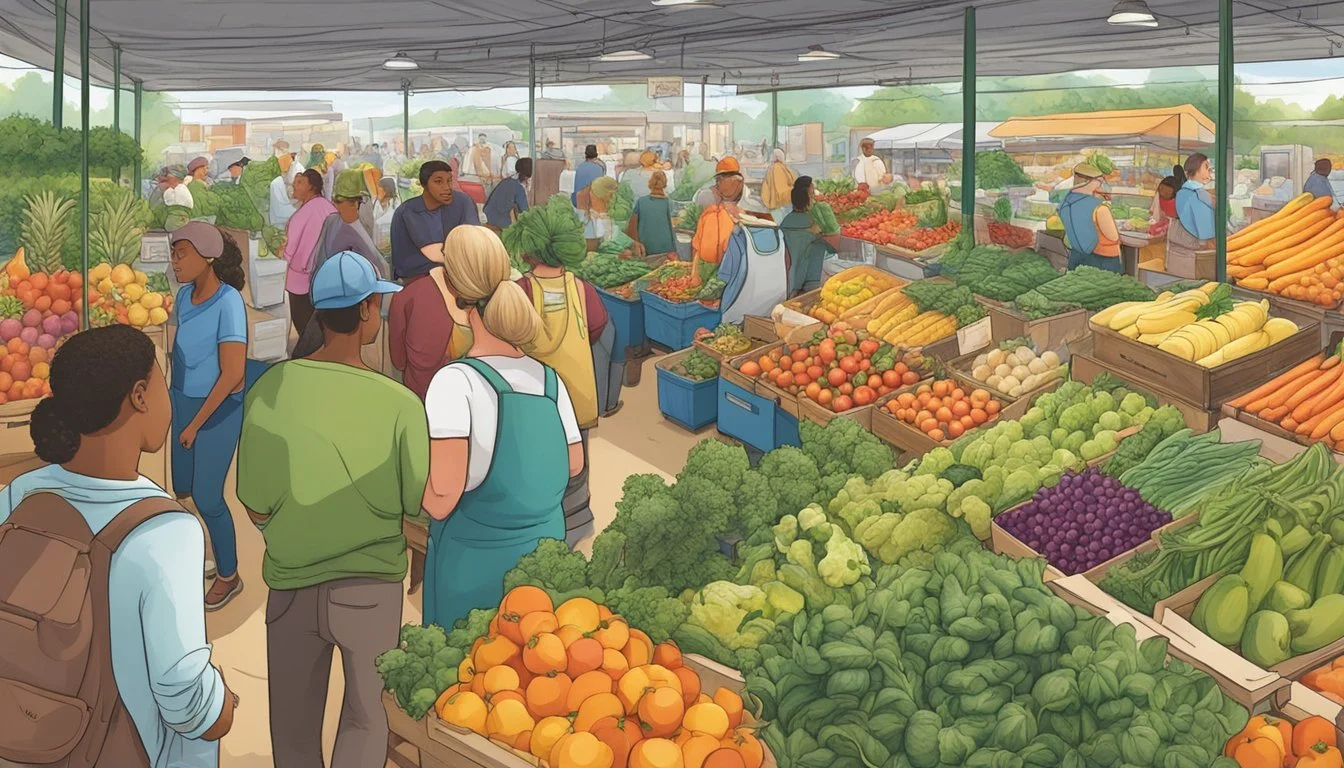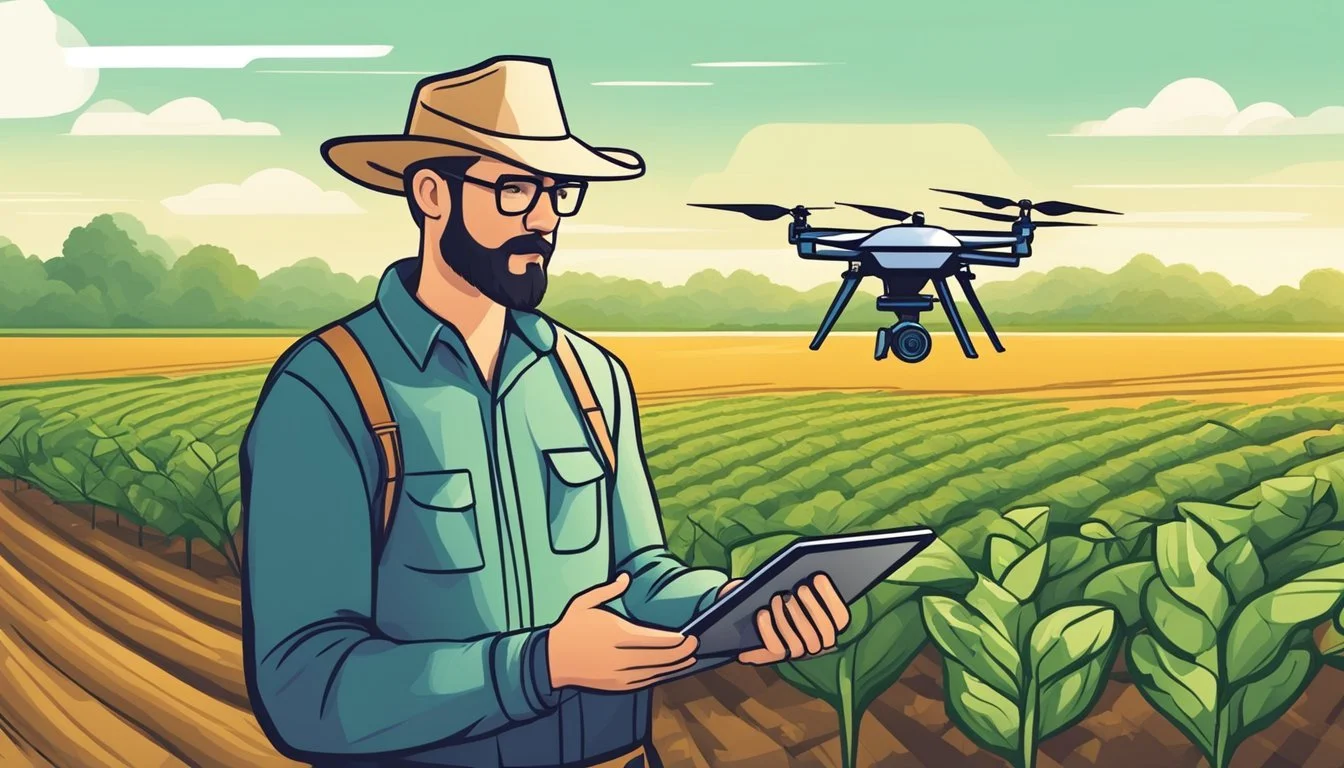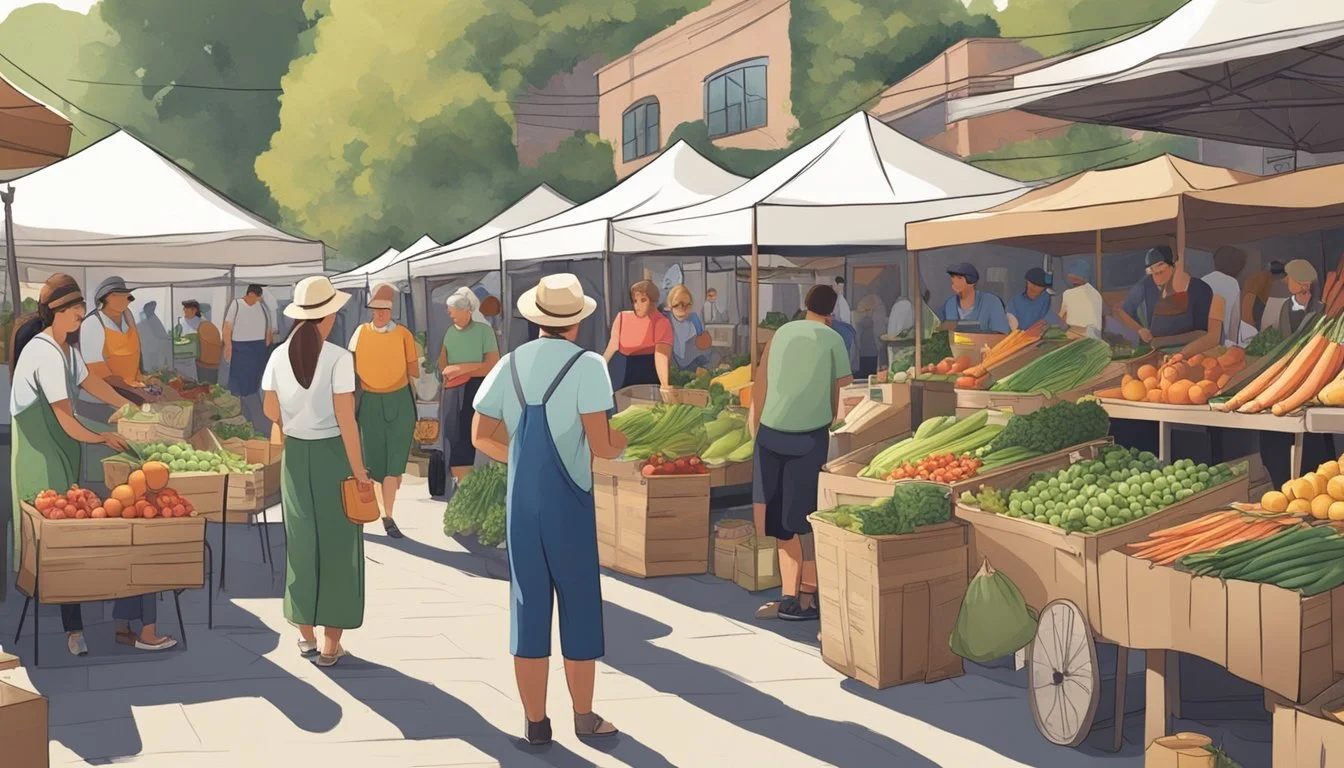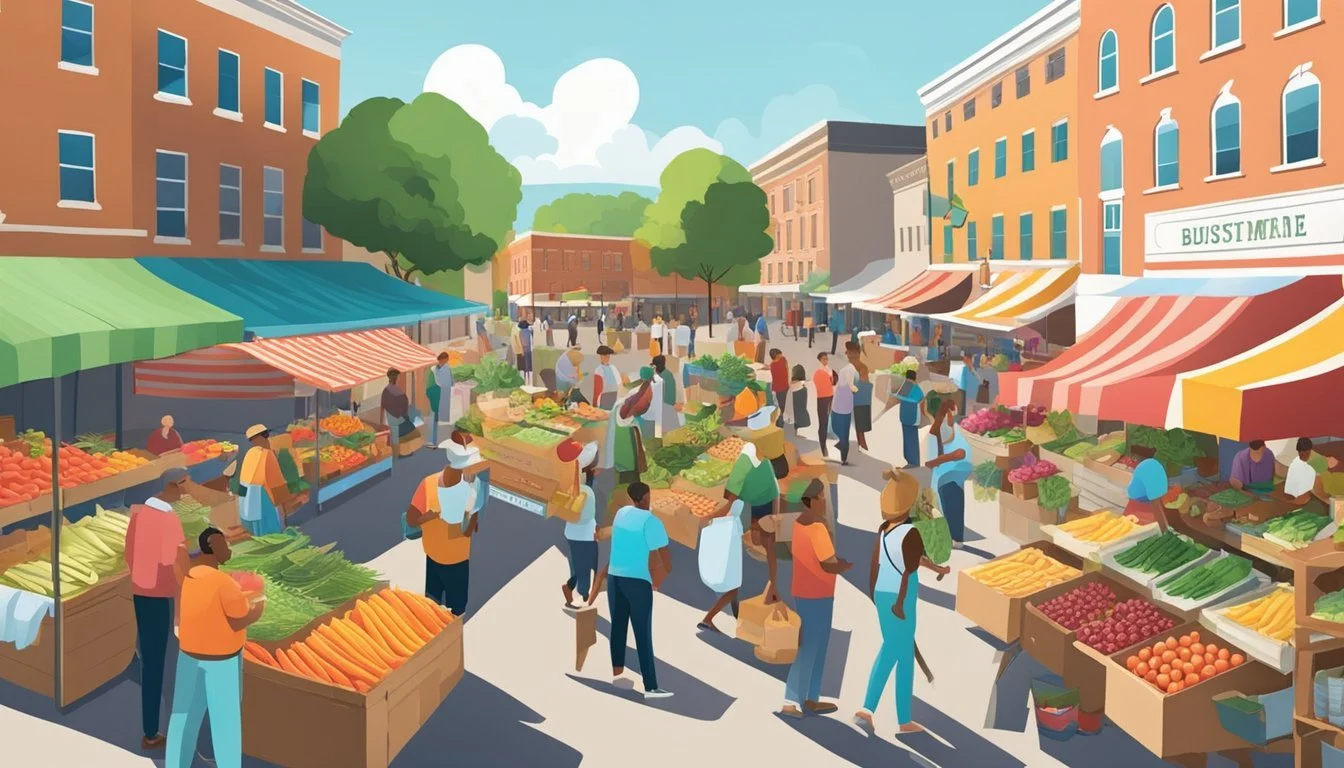Community Supported Agriculture (CSA) in Augusta, GA
Fresh Produce Straight from Local Farms
Community Supported Agriculture, or CSA, is a model that connects local farmers directly to consumers. In Augusta, GA, and its surrounding areas, CSA programs allow residents to invest in local agriculture by purchasing shares of a farm's harvest in advance. This not only guarantees them a regular supply of fresh, locally grown produce but also supports the farmers' efforts to maintain and cultivate their land sustainably.
The concept of CSA first took root in the United States in the 1980s and has since become a popular pathway for fostering relationships between community members and local farms. Augusta's local food scene thrives on this collaboration, with multiple farms in the region offering CSA memberships. These programs often provide a variety of produce, and some even include options for pastured meats and eggs, catering to the community's desire for diverse and sustainably sourced food.
In the city of Augusta and its environs, CSAs help to ensure that agriculture remains a vital part of the local economy. By engaging with CSA, consumers help reduce food miles and contribute to a smaller carbon footprint. CSA members are often invited to participate in farm events, providing an opportunity to learn about the production of their food and connect with the land and people that grow it.
Understanding CSA
Community Supported Agriculture (CSA) represents a partnership between local consumers and farmers. This section delves into a clearer understanding of the concept, its historical roots, and the various models through which it operates.
Concept and History
Community Supported Agriculture began as a collaborative initiative to bolster local farming by forging a direct partnership between farmers and community members. Key to this concept is the members' subscription—they buy "shares" of the farm's produce, often paid in advance, to secure a season's worth of local, often organically grown, crops.
The roots of CSA trace back to the early 1960s in Germany, Switzerland, and Japan where consumers interested in safe food and farmers seeking stable markets for their crops began this partnership. The CSA model reached the United States in the 1980s and has since seen a steady growth, with many communities in Augusta, GA, now participating in this sustainable food system.
CSA Models
There are several models of CSA, each shaped by the relationship community members prefer to have with their farmer and the farm.
Traditional CSA Model: Members pay for a designated period and receive a weekly or bi-weekly box of farm products. This model establishes a risk and reward sharing system, where members may receive a varied quantity of produce depending on the season's success.
Market-Style CSA Model: Members have more flexibility to choose the produce they receive from a predetermined selection, mimicking a farmers' market experience.
CSA Subscription Service Model: Some CSAs run on a more formal subscription basis where members can sometimes pause their membership or choose the exact contents of their delivery.
Regardless of the model, CSAs emphasize a strong sense of community and foster an intimate relationship with the farmer. These models have proven not only to maintain a sustainable farming operation but also to strengthen the local food system in Augusta, offering community members fresh, seasonal produce, and nurturing a connection between consumers and their food sources.
CSA Benefits
Community Supported Agriculture (CSA) in Augusta, GA, offers a symbiotic relationship between local farms and the community. Through CSA programs, consumers gain access to fresh, seasonal produce, while farmers receive a stable market for their farm products.
Advantages for Consumers
Access to Fresh Produce: Consumers enjoy a regular supply of fresh and seasonal produce directly from local farms. This often includes a variety of fruits and vegetables that are picked at their peak of freshness, ensuring higher nutritional value and superior taste.
Connection to Agriculture: Members develop a deeper understanding of where their food comes from and how it is grown. This often enhances their sense of community and supports sustainable and organic farming practices.
Advantages for Farmers
Financial Security: By selling shares of their harvest in advance, farmers in Augusta can secure a stable income early in the season. This helps in planning and covers the costs of seeds, equipment, and labor.
Market Assurance: Farmers benefit from a guaranteed market for their products, reducing the uncertainty of selling in volatile markets. They also receive direct feedback from consumers, allowing for the development of strong relationships and customer loyalty.
By advocating for community supported agriculture, Augusta, GA, fortifies its commitment to local farmers and sustainable food systems while bolstering a sense of community around the joys of fresh, locally-sourced food.
Starting a CSA Program
When establishing a Community Supported Agriculture (CSA) program in Augusta, GA, the initial setup and development of a strong farmer-member base are crucial for success. These two components lay the groundwork for a sustainable, community-centric food system.
Initial Steps
To begin a CSA, farmers must assess their land and resources. For example, Crescent Moon Farm, spanning 28 acres of certified organic land in Aiken, demonstrates this by designing a sustainable cultivation system slated for production. Critical early steps include:
Identifying the production capacity of the farm to estimate the number of shares the CSA can offer.
Deciding the type of shares (e.g., vegetables, pastured meats, and eggs) based on the farm’s output capabilities.
Determining the length of the CSA season, with many nationwide averaging 20 weeks.
Outlining a membership fee structure to cover production costs and set the financial foundation of the CSA.
Farmers should also plan the logistical aspects of share distribution, whether it's through on-farm pickups or delivery services.
Building a Farmer-Member Base
Establishing a connection with the local community is essential for a CSA. Farmers should reach out and promote their CSA to gain members who are interested in receiving fresh, local produce. Strategies to attract and retain members include:
Marketing efforts: Utilize local markets, social media, and community events to increase visibility.
Membership benefits: Offer clear value, such as fresh food, a relationship with the farmer, and a sense of community involvement.
Education: Explain the concept of CSA and the importance of supporting local agriculture.
Feedback systems: Establish channels for members to communicate with the farmer to create a responsive and adaptive CSA program.
Building a reliable member base requires time and engagement, but it forms the heart of a CSA, fostering a collective effort between the farmer and community to sustain local agriculture.
CSA Membership
Community Supported Agriculture in Augusta, GA, offers residents an opportunity to engage directly with local farms through membership. By purchasing a share, members receive a variety of farm products, ensuring access to fresh produce throughout the season.
Subscription Types
Weekly Share: Members receive a box of seasonal produce each week during the harvesting season. This is the most common form of CSA subscription, providing a steady supply of farm products.
Bi-Weekly Share: For those who find a weekly share too abundant, farms also offer bi-weekly shares, distributing a box of produce every other week.
Cost and Fee Structure
Standard Share Fee: Typically, members pay upfront for the season, which can range from $300 to $500 depending on duration and quantity of produce. Some farms may allow payment in instalments.
Additional Offerings: Certain CSAs provide the option to add on specialty items like eggs, cheese, or meat for an extra fee.
Reduced Rates: Some farms offer a sliding scale fee structure or reduced rates for those who cannot afford the full price, fostering community inclusiveness.
Membership in a CSA provides direct support to local farmers and reinforces a sustainable food system in Augusta, GA.
CSA Operations
Community Supported Agriculture (CSA) operations in Augusta, GA, are instrumental in connecting consumers to fresh, local produce and other farm products. Through a model of mutual support, farmers and consumers share the responsibility and bounty of agricultural production.
Production Planning
CSA farmers meticulously plan their production to ensure a steady supply of vegetables, meat, cheese, and other seasonal products for their members. Production planning involves:
Crop rotation: To maintain soil health and control pests and diseases.
Harvest schedules: Ensuring continuous and varied produce availability.
Member shares: Pre-determined quantities of produce to distribute regularly to CSA members.
Sourcing inputs: Procuring seeds, feed, and other supplies from reliable local sources when possible.
Weather Considerations
The success of CSA operations heavily depends on weather patterns, which can be unpredictable. Key weather considerations include:
Adaptation to climates: Selecting crops that thrive in the regional climate and altering planting times to match seasonal weather trends.
Irrigation strategies: Efficient water management can overcome periods of drought or excessive rain.
Risk management: Employing techniques like crop diversification and using greenhouses or hoop houses to mitigate adverse weather effects.
By considering both production planning and weather, CSA operations in Augusta, GA, ensure their ability to provide a diverse array of farm products, including fresh vegetables, quality meats, and artisanal cheeses, to their local community.
CSA Products
Community Supported Agriculture in Augusta, GA, offers a diverse array of fresh, locally-produced food items, focusing on organic and sustainable practices.
Variety of Offerings
CSAs in the Augusta area typically include a range of vegetable offerings, reflecting the seasonal produce available. Shareholders can expect a selection that evolves throughout the growing seasons, providing them with access to everything from leafy greens and root vegetables to heirloom varieties of tomatoes and peppers. In addition to vegetables, many CSAs offer fruit, eggs, and cheese, ensuring that members enjoy a wide spectrum of fresh and nutritious foods.
Vegetables: Seasonal variety including greens, roots, and heirlooms
Fruit: Local staples such as peaches and berries
Eggs: Often offered from pasture-raised chickens
Cheese: Selections from local dairies may be available
Organic and Sustainable Practices
Producers in the Augusta area often employ organic farming methods, eschewing synthetic fertilizers and pesticides in favor of natural alternatives that promote soil health and biodiversity. Not only do these practices ensure the production of high-quality organic vegetables and fruits, but they also support local ecosystems. Meats provided by CSAs are generally sourced from animals raised on pasture, leading to higher quality meat offerings. The commitment to sustainable agriculture and organic principles ensures that the fresh produce shareholders receive is grown with the utmost care for the environment.
Organic Farming: Use of natural inputs and proactive soil management
Sustainable Agriculture: Emphasis on ecological balance and long-term viability
Meat: Pasture-raised with no antibiotics or growth hormones
CSA Distribution
Community Supported Agriculture in Augusta, GA, revolves heavily around ensuring that members have convenient access to their CSA shares, which contain fresh, locally-grown farm products. Distribution methods are vital to the CSA program's success, with farms offering structured pickup locations close to Augusta and home delivery options for enhanced convenience.
Pickup Locations
Crescent Moon Farm, for example, has established a certified organic farm in nearby Aiken and proposes a structured system for members to collect their shares. CSA members are generally required to choose a pickup location from an array of options provided by the farm. The method organizes weekly pickups where a box containing a variety of vegetables or a combination of farm products, including pastured meats and eggs, is prepared for each member.
Example Pickup Locations:
Farm Stand: On-site at Crescent Moon Farm
Farmers Markets: Augusta local markets
Neighborhood Drop-off Points: Specific, predetermined community locations
Home Delivery Options
While pickup locations serve as a central aspect of most CSA programs, some farms may offer home delivery options to bring convenience directly to the consumer's doorstep. This service facilitates members who may not have the time for pickups or prefer the comfort of receiving goods at their home.
Delivery Availability:
Within Certain Radius: Usually limited to a specific distance from the farm
Frequency: Matches the regularity of the CSA program, typically weekly
Additional Cost: Varies by farm, reflecting the convenience and transportation costs
Role of Technology in CSA
In Augusta, GA, the incorporation of technology into Community Supported Agriculture (CSA) fundamentally enhances efficiency and connectivity between farms and consumers, leveraging data and digital platforms to streamline operations and market products.
Data Management
Technological advancements enable CSA farms in Augusta to adeptly manage vast amounts of data, optimizing their operations from planting to distribution. This is facilitated by data management systems that can assimilate various types of information, such as crop yields, member preferences, and financial transactions. The integration of APIs (Application Programming Interfaces) allows different software applications to communicate and exchange data efficiently, ensuring that market managers have real-time access to essential data that aids in decision-making.
Local food directories, like LocalHarvest, utilize technology to collect and display comprehensive information about CSAs, which is invaluable for consumers seeking fresh produce in Augusta.
Market managers employ specialized software to track membership details, payment histories, and purchase patterns, ensuring a seamless farm-to-table journey for CSA subscribers.
Online Marketplaces
The utilization of online marketplaces has revolutionized how CSA shares are sold and distributed in Augusta. These digital storefronts provide:
Convenience for consumers to browse and purchase CSA shares.
A centralized platform that allows farms to reach a broader audience.
LocalHarvest is an example of an online directory that connects consumers to local CSA farms, showcasing available shares and providing an avenue for direct purchase. These platforms typically feature:
Detailed profiles of CSA offerings, complete with pricing, share sizes, and pickup locations.
Simple, user-friendly interfaces that allow consumers to secure their CSA shares with just a few clicks.
By adopting online marketplace solutions, CSA farms in Augusta can broaden their consumer base while maintaining a close-knit community ethos centered around sustainable and locally grown food.
Consumer Education
Consumers often require guidance to fully embrace the Community Supported Agriculture (CSA) concept. Education on CSA programs not only amplifies community engagement but also empowers individuals with essential cooking and storage tips to handle local, seasonal produce effectively.
Community Engagement
Community Supported Agriculture thrives on engagement at a local level, fostering a sense of community among its members. By participating in a CSA, members commit to the success of their local farms within and around Augusta, GA. This engagement cultivates a deeper understanding of seasonal food cycles and the challenges of small-scale farming. Consumers learn firsthand about the importance of supporting local agriculture, which in turn reinforces the local economy and establishes a more resilient food system.
Strengthen community bonds.
Gain insight into sustainable farming practices.
Encourage economic growth within the local community.
Cooking and Storage Tips
CSA members receive a variety of seasonal produce, often including items that are unfamiliar. Educational resources on cooking and proper storage are vital to prevent food waste and to help members enjoy the full nutritional benefits of their share. Many CSAs provide recipes and tips either through social media, newsletters, or included in the delivery, ensuring members are equipped to store and prepare the fresh produce.
Key Tips for CSA Members:
Storage: Cool, dark places or refrigeration may be necessary to maximize freshness.
Preparation: Utilize provided recipes or explore online cooking guides tailored to seasonal ingredients.
By integrating community engagement with practical cooking and storage tips, CSAs in Augusta, GA, and beyond contribute significantly to consumer education and overall satisfaction with the CSA experience.
Local CSA Directory
In Augusta, Georgia, the CSA landscape offers consumers the opportunity to directly support local agriculture and establish a closer relationship with the farmers who produce their food. This directory provides information on how to connect with local CSA farms and learn about the farmers behind the produce.
LocalHarvest and API Listings
LocalHarvest remains a crucial resource for those seeking CSA options near Augusta, GA. It aggregates and provides detailed listings of local farms offering CSA shares. Prospective members can use the LocalHarvest website to access information on various CSA farms in the Central Savannah River Area (CSRA), a region encompassing Augusta. An API provided by LocalHarvest could be employed by developers to integrate CSA farm data into third-party applications or websites, further promoting local CSA options.
Example CSA Listing:
Farm Name: Ponderosa Plantation
Location: Trenton, SC (near Augusta, GA)
Contact: Available through LocalHarvest's platform
Offerings: Seasonal vegetables, other farm products; subscription basis.
Additional Info: Find them on Facebook for updates and farm imagery.
Farmer Interviews and Profiles
Understanding the backgrounds and farming philosophies of local farmers is key to appreciating the value of CSA subscriptions. Profiles and interviews conducted with farmers provide insights into their farming practices, challenges, and the seasonal offerings one can expect. Community engagement, including Farmers' Markets, provides further opportunities to meet CSA providers face-to-face, fostering a stronger connection and trust between consumer and producer.
Featured Local Farm:
Farm Name: Crescent Moon Farms
Location: Aiken, SC (adjacent to Augusta, GA)
Highlights: Known for their commitment to sustainable agriculture and community involvement.
How to Subscribe: Join through their website or inquire at local Augusta Farmers Markets.
Supporting Local Agriculture
In Augusta, GA, initiatives like Community Supported Agriculture (CSA) are burgeoning, testament to the city's commitment to local farmers and diverse, seasonal produce.
Advocating for CSA
Advocacy for CSAs in Augusta takes a proactive approach to educating the community about the benefits of supporting local agriculture. Local food advocates work closely with market managers to promote CSA subscriptions, which provide financial support to farmers in both Georgia (GA) and the neighboring South Carolina (SC). These subscriptions allow consumers to receive a regular supply of fresh, local produce, thereby ensuring farmers have a consistent and reliable market for their harvests.
Educational Programs: Workshops and seminars on the importance of local agriculture.
Marketing Campaigns: Targeted efforts to raise awareness about CSA programs.
Leveraging Community Networks
Networking plays a pivotal role in bolstering CSAs through the establishment of connections between local farmers and the wider community. By leveraging community networks, Augusta's marketplace for local and seasonal produce thrives and becomes more accessible.
Community Events: Farmers markets and local food festivals serve as platforms for CSA promotion and farmer-consumer interaction.
Collaborative Platforms: Online forums and social media groups connect consumers directly with CSA providers in Augusta and the surrounding areas.

